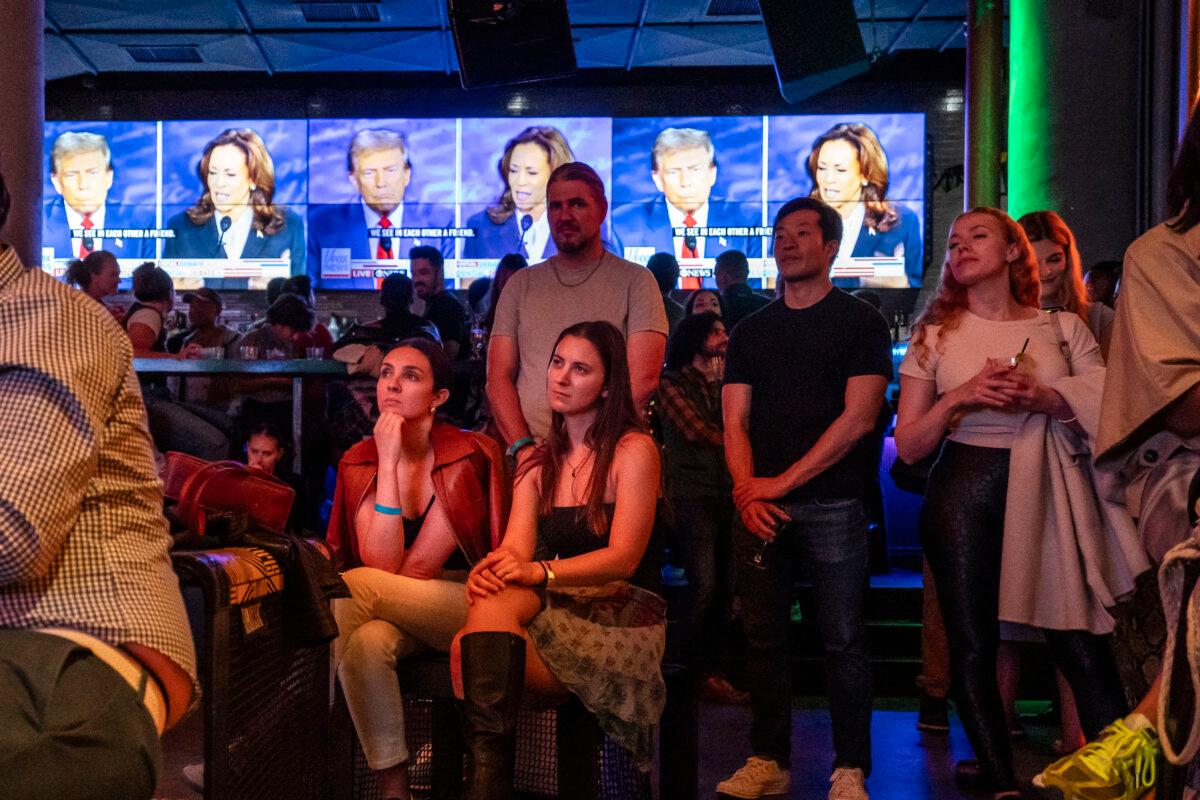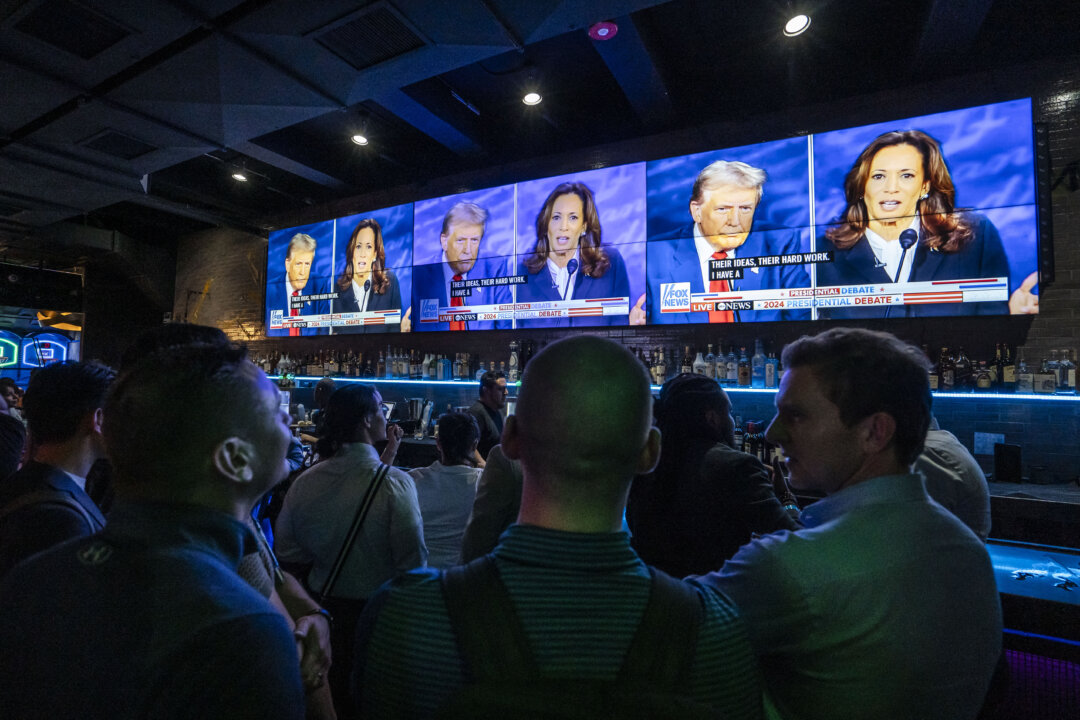The first Harris–Trump debate won’t move millions of votes, as the race is expected to be tight until the end, Sen. Murphy said.
With the first debate between Vice President Kamala Harris and former President Donald Trump now concluded, attention has turned to its potential effect on undecided voters as the race for the presidency enters the home stretch.
Following the debate, both campaigns were quick to declare victory.
While commentators have taken sides on who performed better in the debate, the jury is still out on whether undecided voters were swayed one way or the other.
“Typically, debates do not seem to have much of a lasting effect on vote choice,” Karen Hult, a political science professor at Virginia Tech, told The Epoch Times.
Reuters said that out of a group of 10 undecided voters it interviewed after the debate, six said they would now either vote for Trump or were leaning toward him. Three said they would support Harris, while one remained uncertain.
‘Great Night’
“I thought it was a great night,” Trump told reporters, making a surprise visit to the spin room, where normally the candidates’ surrogates brief the media.
Meanwhile, the Harris campaign issued a statement calling for another round in October.
Many of Trump’s supporters criticized the ABC debate as being “three-on-one.” They said the two ABC moderators directed all their fact-checking to the former president and that Harris didn’t receive such treatment.
“The ABC moderators did everything to help Harris; it was disgraceful,” Ford O’Connell, a Republican strategist, told The Epoch Times after watching the debate.
Trump’s close allies agreed. However, they also criticized the former president for not pressing Harris enough on key issues such as inflation.
Sen. Lindsey Graham (R-S.C.) told reporters after the debate that it was “a missed opportunity” for Trump not to challenge her.
The Epoch Times contacted ABC News for comment but didn’t hear back by publication time.

‘Opportunity Economy’
Ahead of the showdown, many predicted that Harris would come under pressure, as many voters were uncertain about her stance on major policy issues after 3.5 years in office.
A poll conducted by The New York Times and Siena College before the debate found that nearly 30 percent of voters wanted to know more about Harris and almost half of voters considered her views “too liberal or progressive.”
She recently faced criticism for changing her stance on key issues, including fracking and the border wall.
In response, Harris sought to use the debate stage to promote her plans. Several times, she responded to questions by listing recently announced proposals, such as providing a $50,000 tax break for startups, an expanded child tax credit, and a $25,000 assistance payment for first-time homebuyers.
“I am offering what I describe as an opportunity economy,” Harris said during the debate.
Pennsylvania Gov. Josh Shapiro praised Harris’s performance.
“I think a lot of undecided voters care about the economy,” he said. “I thought her plans to reduce the burden on small businesses spoke to them.”
However, critics argue that she offered no additional details on her plans.
“The American people still don’t know where Harris stands on the issues, because she refused to answer basic questions on inflation, border security, and energy,” O’Connell said.
Key Endorsement
Singer Taylor Swift endorsed Harris on Instagram shortly after the debate and urged her fans to make their own informed choices.
After hearing the endorsement, Sen. Chris Murphy (D-Conn.) said that Swift’s announcement was “a cherry on top of a very good night for Kamala Harris.”
However, some Democrats including Murphy acknowledge that the presidential race is likely to remain tight until the end.
“I think the debate should move millions of votes. It probably won’t,” Murphy told The Epoch Times. “This race is probably going to be close to the end, but if this debate moved tens of thousands of votes, that may be the margin between victory and defeat in the end.”

